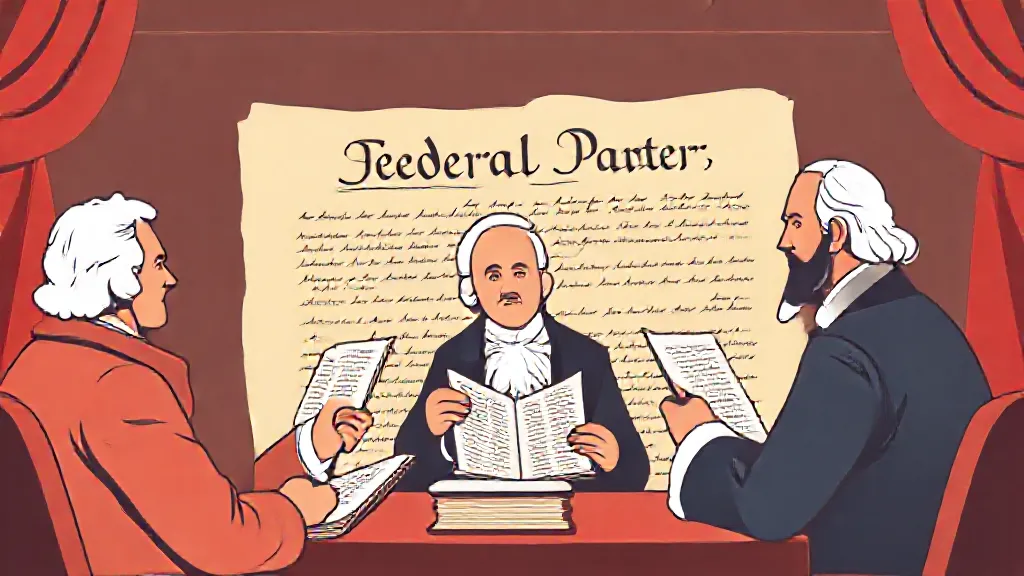The Federalist Papers, a collection of 85 articles and essays written by Alexander Hamilton, James Madison, and John Jay, were published between 1787 and 1788 to promote the ratification of the United States Constitution. These writings not only clarified the intentions of the framers but also addressed the concerns of the Anti-Federalists who feared a strong central government. The influence of the Federalist Papers on the Constitution is profound, as they provide essential insights into the principles and ideas that underpin American democracy.
Historical Context of the Federalist Papers
The Federalist Papers emerged during a critical period in American history. After the Revolutionary War, the Articles of Confederation proved inadequate in governing the new nation, leading to economic turmoil and interstate conflicts. In response, the Constitutional Convention of 1787 was convened in Philadelphia, where delegates crafted a new framework for governance.
The Federalist Papers were written to persuade the public and state legislatures to support this new Constitution, highlighting the necessity of a stronger federal government to maintain order and protect liberties.
The Argument for a Strong Central Government
One of the central themes of the Federalist Papers is the argument for a robust central government. In Federalist No.
10, Madison discusses the dangers of factions and the need for a large republic to mitigate their effects. He argues that a diverse society would prevent any single faction from dominating, thus protecting minority rights. This argument laid the groundwork for the Constitution’s structure, which includes checks and balances designed to prevent any one branch of government from becoming too powerful.
Checks and Balances: A Core Principle
The Federalist Papers extensively discuss the concept of checks and balances, which is fundamental to the Constitution. Federalist No. 51, also authored by Madison, emphasizes the importance of separating powers among the legislative, executive, and judicial branches.
This separation is intended to ensure that each branch can limit the powers of the others, thereby safeguarding against tyranny. The framers were influenced by Enlightenment thinkers like Montesquieu, whose ideas on government structure are reflected in the Constitution.
Addressing Anti-Federalist Concerns
The Federalist Papers also served as a response to the concerns raised by the Anti-Federalists, who feared that a strong national government would infringe upon individual liberties.
In Federalist No. 84, Hamilton argues against the need for a Bill of Rights, asserting that the Constitution itself is a bill of rights, as it limits government powers and protects individual freedoms. This debate ultimately led to the adoption of the first ten amendments, known as the Bill of Rights, which addressed many Anti-Federalist concerns and helped secure ratification.
Influence on Ratification Debates
The Federalist Papers played a crucial role in the ratification debates across the states. They were widely circulated and discussed, providing a coherent argument in favor of the Constitution. The essays were published in newspapers and pamphlets, making them accessible to the general public.
Their persuasive language and logical reasoning helped to sway public opinion, particularly in key states like New York and Virginia, where ratification was contentious.
Lasting Legacy of the Federalist Papers
The influence of the Federalist Papers extends beyond the ratification of the Constitution. They are frequently cited in legal and political discourse, serving as a reference point for interpreting the Constitution’s meaning.
Supreme Court justices and scholars often refer to the Federalist Papers when deliberating on constitutional issues, emphasizing their enduring relevance in American law and governance. The writings encapsulate the framers’ vision and continue to inform contemporary debates about federalism and individual rights.
Conclusion: The Federalist Papers as a Foundational Text
In conclusion, the Federalist Papers were instrumental in shaping the U.
S. Constitution and the principles of American democracy. They provided a framework for understanding the necessity of a strong federal government while addressing the fears of potential tyranny.
Their influence on the ratification process and subsequent legal interpretations underscores their importance as foundational texts in American political thought. The ideas articulated in these essays remain vital to discussions about governance and individual rights in the United States today.
